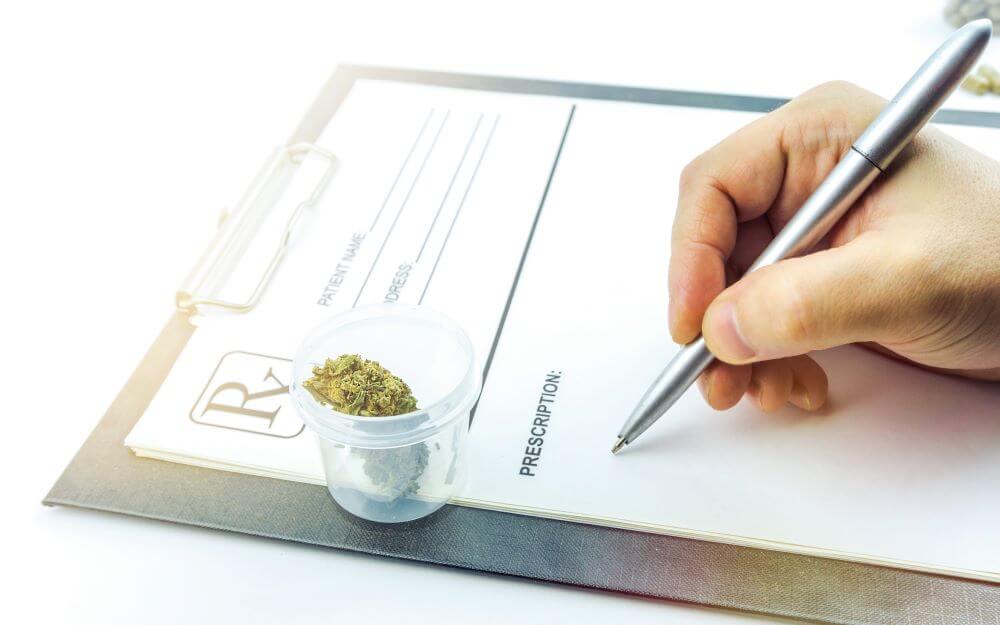Caring for someone with dementia is a unique journey filled with challenges, especially when it comes to managing symptoms like anxiety, agitation, and sleep problems. These symptoms can make life difficult not just for the person living with dementia but also for their caregiver. That’s why many caregivers are exploring alternative treatments, including marijuana, to help ease the way.
If you’re part of a dementia caregiver support group, you’ve probably seen discussions about using marijuana. Many caregivers share glowing stories of how it’s helped their loved ones feel calmer or sleep better. But is marijuana really a safe and effective option for dementia care? Let’s take a closer look at what the research says and what you need to know.

What is Marijuana?
Marijuana comes from the cannabis plant and contains over 100 chemical compounds called cannabinoids. The two main cannabinoids are:
- THC (tetrahydrocannabinol): The psychoactive component that produces the “high” feeling.
- CBD (cannabidiol): A non-psychoactive compound that offers calming effects without altering the mind.
In the U.S., marijuana-derived medication has been used for decades. For example, Marinol, a prescription form of marijuana, has been FDA-approved since 1985 to stimulate appetite. Many caregivers and healthcare providers, including myself, have seen it used to help older adults eat better. But its potential benefits for dementia extend beyond appetite.

Can Marijuana Help Dementia Patients?
Recent studies suggest that certain cannabinoids, particularly CBD, may help manage dementia symptoms. Although more research is needed, early findings are promising.

Reducing Anxiety and Agitation
Anxiety and agitation are common in dementia and can be distressing for both patients and caregivers. CBD may help calm these symptoms by interacting with specific receptors in the brain, promoting a sense of relaxation.
Improving Sleep Quality
Sleep disturbances can make dementia even harder to manage. CBD’s calming effects may help promote better sleep, leading to improved mood and functioning during the day.
Boosting Appetite
Loss of appetite is a frequent issue in dementia, sometimes resulting in weight loss and malnutrition. THC, known for causing “the munchies,” is being studied to see if it can safely stimulate appetite in people with dementia.

Research
Researchers are investigating whether specific strains can help boost appetite in dementia patients. Can controlled amounts of THC and CBD improve their intake and health?
Recent research has shown that it may have a variety of health benefits. For example, some studies have shown that marijuana can help manage chronic pain. Others have been shown to help with multiple sclerosis and epilepsy.
But what about dementia? Many caregivers and family members have reported that marijuana helps manage symptoms. Especially aggression, agitation, and sleep problems in people with dementia.
While marijuana use in dementia care is still a developing area of study, some research points to the potential benefits of cannabinoids—primarily THC and CBD—in managing symptoms and possibly influencing the progression of the disease. Here’s what we know so far:
THC and Brain Inflammation
A 2016 study published in the Journal of Alzheimer’s Disease found that small amounts of THC might reduce brain inflammation, a key factor in the progression of Alzheimer’s. Brain inflammation is thought to contribute to the formation of amyloid plaques, which are hallmark features of Alzheimer’s disease. By reducing inflammation, THC may help slow down or prevent further cognitive decline. However, the doses studied were very low—far below the amounts that cause a psychoactive “high.”
CBD and Cognitive Function
A 2017 study explored the effects of CBD on cognitive function in people with Alzheimer’s. Researchers discovered that CBD might promote neurogenesis (the growth of new brain cells) and protect against oxidative stress, which damages brain cells over time. These effects could improve memory, learning, and overall cognitive performance, especially in the earlier stages of dementia. While these findings are promising, the study focused primarily on animal models, meaning more human trials are needed to confirm these benefits.
CBD and Behavioral Symptoms
Behavioral and psychological symptoms of dementia (BPSD), such as agitation, aggression, and anxiety, are among the most challenging aspects of care. Early research has shown that CBD’s calming effects may help reduce these symptoms by interacting with the brain’s endocannabinoid system. This system plays a role in regulating mood, stress, and perception, making it a potential target for reducing distress in dementia patients.
The field of cannabis research is growing, and larger, more comprehensive studies are underway. However, until more evidence is available, caregivers should approach marijuana use with caution and always consult a knowledgeable healthcare provider.

Potential Risks of Marijuana in Dementia Care
Like any treatment, marijuana has side effects. Common ones include:
- Dry mouth
- Red eyes
- Increased heart rate
- Impaired coordination
In some cases, marijuana can worsen confusion, paranoia, or hallucinations, particularly in people with dementia. It may also interact with other medications, so always consult a healthcare provider before starting.

Legal Issues to Consider
The legal issues surrounding marijuana use can be confusing and intimidating. Especially for caregivers and family members who are new to the world of medical marijuana.
State laws vary in which conditions qualify for treatment with medical marijuana. For example, depending on your state, the following diseases may be eligible for medical use.
- Alzheimer’s disease
- Amyotrophic lateral sclerosis (ALS)
- HIV/AIDS
- Crohn’s disease
- Epilepsy and seizures
- Glaucoma
- Multiple sclerosis and muscle spasms
- Severe and chronic pain
- Severe nausea or vomiting caused by cancer treatment
You can find your state’s medical marijuana information at State by State Medical Marijuana Laws.
Here are some essential legal things to consider:
- Marijuana is still illegal at the federal level, meaning caregivers and family members who use it may be at risk of legal consequences. Yet, some states have legalized marijuana for medicinal use. Others have legalized it for both medicinal and recreational use.
- Suppose you live in a state where marijuana is legal. In that case, you must get a medical marijuana card to buy and use it. This will need a doctor’s recommendation and an application process. The process can vary depending on the state.
- It’s important to buy marijuana from a licensed dispensary. Follow the dosing instructions carefully. Using too much or too little can be ineffective or even harmful.
- It’s also important to keep marijuana out of children’s reach. Use it only in a safe and secure environment.
The legal issues surrounding marijuana can be complicated. It’s important to remember that using marijuana as a treatment for dementia is a personal decision. Weigh the potential benefits and risks. Discussing your options with a healthcare provider is essential.

Alternative Treatments for Dementia
Suppose you’re not comfortable using marijuana as a treatment for dementia. In that case, many other alternative treatments may be helpful. Here are some options to consider:
- Music therapy: Listening to music or playing an instrument can help. It can calm and soothe people with dementia. It may also improve their mood and cognitive function.
- Pet therapy: Spending time with animals can be a great source of comfort for people with dementia. It can help reduce anxiety and agitation.
- Art therapy: Creative activities can help people with dementia express themselves. Painting or drawing may improve their mood and cognitive function.
- Massage therapy: Gentle massage can help reduce anxiety and agitation in people with dementia. It may even improve their sleep and overall well-being.
- Aromatherapy: Using essential oils can help calm and soothe people with dementia. Lavender or peppermint may improve their mood and cognitive function.
These alternative treatments are generally safe and can be combined with medication or therapy. Discussing your options with a healthcare provider is essential. It will help you determine the best approach for your loved one.

Dementia Marijuana Information Resources
If you are thinking about trying marijuana for your loved one, I recommend you learn more about it. Here are a couple of resources you may find helpful.
Website: Mayo Clinic – Their website includes an article discussing the potential benefits and risks of using medical marijuana for Alzheimer’s disease and related dementias. https://www.mayoclinic.org/healthy-lifestyle/healthy-aging/expert-answers/medical-marijuana-for-alzheimers-disease/faq-2046716
Learn More: Cannabis for Dementia Symptom Management
If you’re curious about how marijuana might help dementia symptoms, check out this video featuring Eloise Theisen, NP, AGPCNP-BC:
Cannabis Use for Symptom Management in Dementia/Alzheimer Patients.
In this presentation from CannMed 2022, Nurse Practitioner Theisen shares case studies and insights from her work with assisted living communities. It’s a great resource for understanding how cannabis is being used in real-world dementia care.
Final Thoughts
Managing dementia symptoms can feel overwhelming, but exploring all options—including marijuana—can help you find the best care for your loved one. While marijuana shows promise for some symptoms like anxiety, agitation, and sleep issues, it’s crucial to weigh the potential risks and consult with a healthcare provider.
Remember, there’s no one-size-fits-all solution for dementia care. Whether you choose marijuana, alternative therapies, or a combination, the most important thing is ensuring your loved one feels safe, comfortable, and supported.
With patience, research, and a willingness to try new approaches, you can help your loved one navigate their dementia journey more peacefully.








